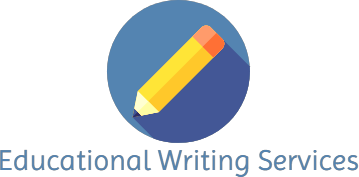By: Kevin Pernell, Digital Content Creator/ Analyst
Entering my first year at North Carolina Agricultural and Technical State University in the Fall of 2023 was quite the challenge. However, I took it on by improving my habits and learning what I needed to be successful. Explore a glimpse into my journey!
Navigating Campus
After taking the 2-and-a-half-hour drive to Greensboro, North Carolina, from my hometown, I was excited to move into my dorm room. For my decor, I brought all of the obituaries of loved ones that I have lost and hung them up on my wall just as a reminder that I have people who had high expectations of me.
The day after I moved in on campus, I took it upon myself to familiarize myself with the buildings I did not tour during my college visit and also during new student orientation. Although I did not understand which buildings were for which department, I read the signs. I also walked my schedule to ensure that I timed out how long it would take me to go from class to class to be sure I was not late. Then, when the semester started, my Freshman 101 class taught me more about navigating the campus. My professor gave us many resources, such as apps and flyers, to let us know how to find out about campus events.
Some of my favorite spots on campus during my first year were the student center and library. The student center was enjoyable because it was a good place to meet new people and socialize. The library is where I went when I needed time to myself to just focus on my studies.
During this year, my favorite class was English because I had a good relationship with my teacher; she was very understanding and dedicated. Lastly, I enjoyed going to events on campus, such as the organization fair and the talent shows.
Improving My Study Habits
Throughout high school, studying diligently was something that I did not do as much as I should have, but when I entered college, those habits changed. Due to complications with my Math class and Business Technology class, I had to determine study habits that worked for me. However, a crucial factor that prevented me from studying was the setting I was in. In my dorm room, I had difficulty focusing on studying because of loud noises. After time, I learned that going to the library at night offered me the quiet time I needed to retain information.
Discovering My Major
Initially, I chose Business Information Technology as my major because I intended to work in the data analytics industry. However, I knew deep down that this career choice wasn’t where my heart wanted to be and that I only wanted to be in it for the money. I took Math 103 during my first semester, and as time progressed, I noticed that math would be one of my struggles, and it continued into my classes during the second semester as well. After discussing these challenges with my mentor, she suggested that I change my major to something that I am more passionate about.
Over the summer, I thought more about my career and my interests. I’ve always loved sports. I attended many sporting events growing up, was a student-athlete in high school, and always enjoyed watching games such as football and basketball with my friends. Watching sports also makes me excited and eager to learn more about the sport. Therefore, in the fall of 2024, I changed my major to Journalism and Mass Communications with a focus in Mass Media Production in hopes of pursuing a career in sports journalism!
Getting Involved and Moving Forward
As I reflect back on last year, I think about how I wasn’t as involved as I should have been. But so far in my sophomore year, I have joined more clubs such as Men On The Move and Lewis Gives to volunteer in the Greensboro community. I have volunteered at elementary schools and nursing homes for Bingo night. Joining clubs has also helped me to make new friends because I am more social while volunteering. Getting more involved on campus is something that I am glad I made the decision to do, and I am looking forward to making more memories during my time at NCAT.






